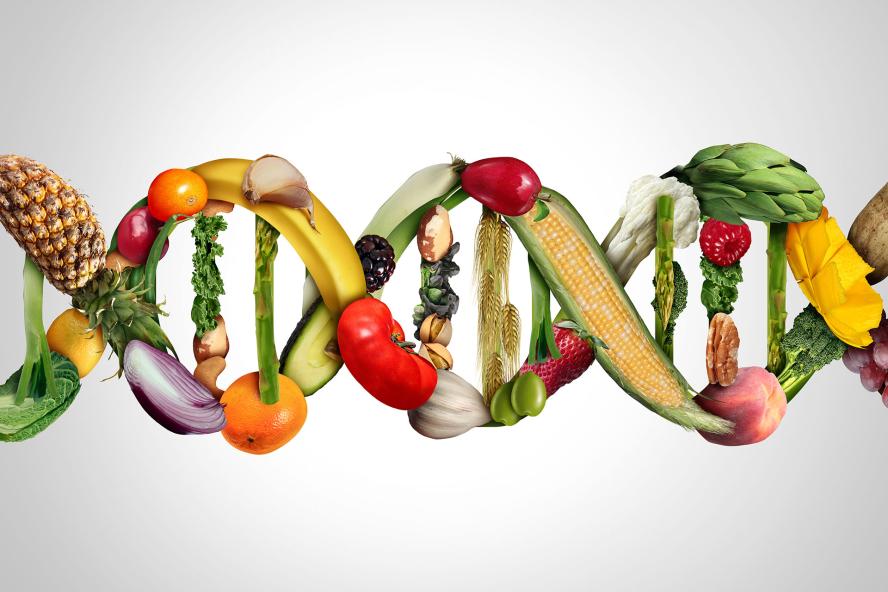Precision Nutrition & Healthy Aging

Precision Nutrition aims to identify individual-level biological, behavioral, and environmental factors that influence responses to diet, with the goal of optimizing health outcomes and preventing or managing chronic disease. Over the last four decades, the HNRCA has been at the forefront of this field; by identifying the complex relationships between nutrition, genetics, and environmental factors influencing health, our research has led to foundational precision science discoveries that are being developed further.
Scientists in this research directive leverage current advances in omics, bioinformatics, artificial intelligence and machine learning to gain insights into the role of dietary factors and their impact on health and aging.
Examples of our work
Research Summary: Predicting obesity risk for tailored interventions
Obesity, a major risk factor for many chronic diseases, is both prevalent and rising globally. Obesity is controlled by hundreds of genes and lifestyle factors, making it extremely complicated to determine who will become obese and why. Scientists in our Precision Nutrition & Healthy Aging directive used machine learning to create an algorithm incorporating genetics, epigenetics, and lifestyle factors to predict the likelihood of someone becoming obese. Our modelling can be used to further our understanding of how specific foods, rather than generic dietary advice, will impact individual risk of obesity and help inform potential interventions to reduce that risk and associated chronic diseases.
Research Summary: The importance of epigenetics in assessing cardiovascular disease risk
Cardiovascular disease is a leading cause of death in the United States and thus a critical area for scientific innovation. Work in our Precision Nutrition & Healthy Aging directive examined how quickly the body clears fat after eating—an understudied risk factor linked to higher disease risk when clearance is slower. This ability varies widely by individual, age, and sex, yet genetics explain only a small portion of the difference. We investigated whether DNA methylation, a key epigenetic mechanism, contributes to this variability. Epigenetics accounted for significantly more variation than genetics alone, expanding our understanding of dietary fat response and emphasizing the importance of the epigenome in assessing cardiovascular disease risk and developing individually tailored interventions.
Additional studies
-
Accurate dietary assessment is essential for advancing nutritional science, yet traditional self-reported methods are prone to bias. Scientists in our Precision Nutrition & Healthy Aging directive identified 12 blood-based biomarkers that correlated with the intake of commonly consumed foods—such as coffee, fish, oranges, and beans—in a Caribbean Hispanic population. Some correlations were further influenced by genetic variation, underscoring the importance of combining genetics, blood chemistry, and diet for precise dietary assessment. These findings provide a foundation for more accurate monitoring of eating patterns and open the door to personalized dietary strategies that support healthier aging trajectories.
-
Diet–gene interactions are central to developing personalized approaches that reduce disease risk and promote healthy aging. Researchers in the Precision Nutrition & Healthy Aging directive studied how variation in the TCF7L2 gene, a key regulator of pancreatic function, modifies cardiometabolic responses to the Mediterranean Diet (MD). In overweight adults, one TCF7L2 variant was associated with greater improvements in triglyceride-rich lipoprotein profiles after one week on the MD, while another variant correlated with distinct changes in circulating fatty acids. These results highlight how genetic background shapes the benefits of dietary interventions and illustrate the potential for tailoring nutrition to mitigate age-related cardiometabolic risk factors.
-
To explore the impact of carbohydrate quality on healthy aging, scientists in our Precision Nutrition & Healthy Aging directive analyzed data from the Nurses’ Health Study collected over 32 years. They found that higher carbohydrate intake from fruits, vegetables, legumes, and whole grains was associated with a greater likelihood of healthy aging — defined as survival free from major chronic diseases, cognitive or physical impairment, and depression. These findings emphasize that carbohydrate quality -- not just quantity-- plays a key role in extending health span and longevity.






